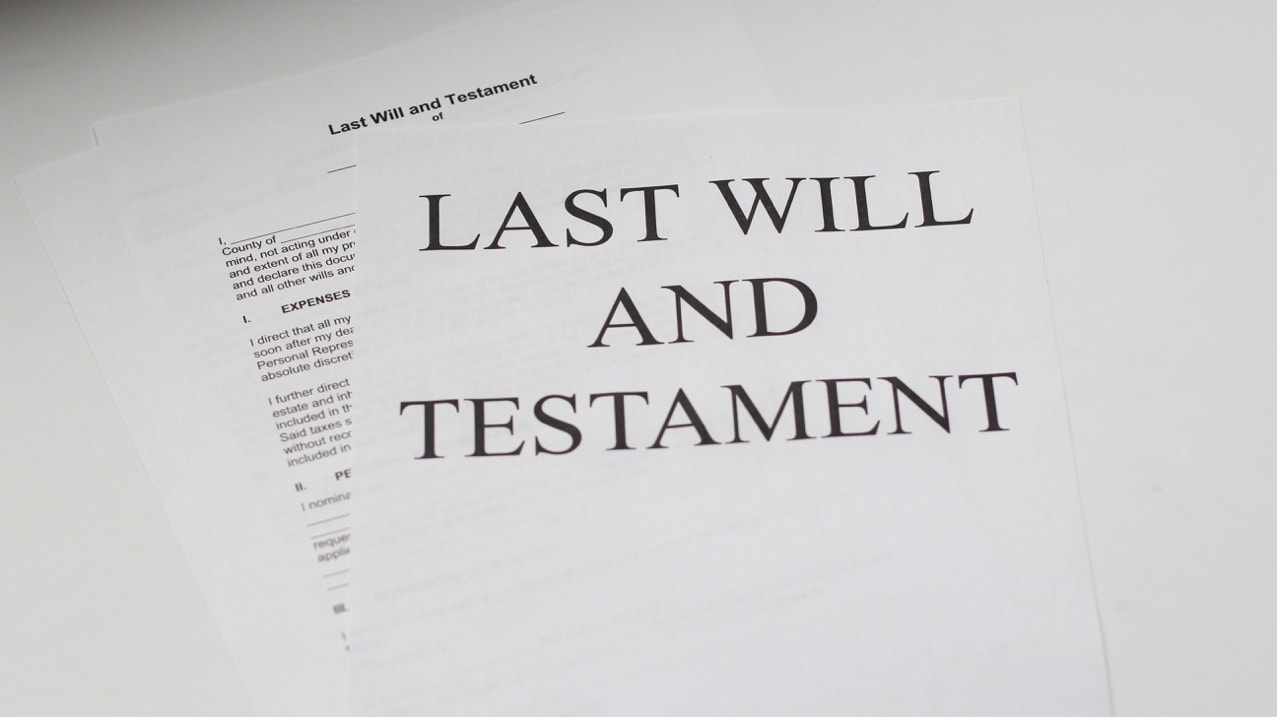
Dealing with the probate process in Colorado can be a complex and emotionally challenging experience. When a loved one passes away, the legal procedures and formalities associated with the distribution of their assets and estate can seem like a perplexing puzzle. The grieving process is already difficult, and the added burden of navigating the probate system can compound the emotional strain.
Whether you find yourself in the role of the executor, a beneficiary named in the deceased person’s will, or even just an interested party with a stake in the estate, there may come a time when you disagree with a decision made by the probate court. This decision could pertain to how assets are being distributed, how debts are settled, or other crucial matters related to the estate. In such instances, you have the option to pursue a probate appeal, which allows you to request a review of the probate court’s decision.
The purpose of this guide is to provide a clear and straightforward overview of how the probate courts function in Colorado and, more specifically, how the probate appeal process operates. We aim to demystify the steps involved in probate appeals, helping you understand the process and your rights in case you believe that a probate court and probate judge decision warrants further scrutiny or revision. By gaining a better understanding of how probate appeals work, you can make informed decisions and take the necessary steps when facing challenging situations in the probate process.
GETTING THE HANG OF PROBATE IN COLORADO
Before we dive into the details of the probate cases and appeals, it’s essential to have a basic understanding of how the probate process in Colorado works. Probate is the rulebook for dealing with a deceased person’s assets and estate. It typically involves a few steps.
GETTING THINGS STARTED:
This initial phase marks the beginning of the probate process in Colorado. It commences when someone submits a petition to the Colorado probate court to initiate a probate case. The person filing the petition could be the executor, who is designated in the deceased person‘s will, or it could be an interested party if there is no will (intestate). This step is critical as it sets the legal framework for handling the deceased person’s estate.
NOTIFICATION & INVENTORY:
Once the Colorado probate court approves the probate case, it is essential to inform all relevant parties who are involved in the estate, which typically includes heirs and beneficiaries. Additionally, during this stage, the executor is tasked with creating a comprehensive list of the deceased person’s assets and debts. This inventory serves as a vital reference for the subsequent distribution of assets and settlement of debts.
CREDITOR CLAIMS:
In this phase, creditors of the deceased individual are given a specific window of time to file claims against the estate in order to collect any outstanding debts that the deceased person owed. This step is important to ensure that legitimate creditors have the opportunity to seek repayment from the estate’s assets.
DISTRIBUTING ASSETS:
Once outstanding debts, expenses, and creditor claims have been addressed and resolved, any remaining assets are distributed among the beneficiaries. The distribution process adheres to the instructions outlined in the deceased person’s will. In the absence of a will, Colorado’s intestate succession laws are followed to determine how assets should be distributed among heirs.
FINAL ACCOUNTING & CLOSURE:
In the final stages of the probate process, the executor is responsible for presenting a final account of all the financial transactions and actions taken during the probate case to the Colorado probate court. Once the court reviews and approves this final account, it signifies the conclusion of the probate case.
This closure officially wraps up the legal process of settling the deceased person’s estate, and the assets are fully distributed according to the established guidelines.

GROUNDS FOR PROBATE APPEALS
Probate court decisions in Colorado can be appealed for various reasons. Some are more common than others.
LEGAL ERRORS:
One of the primary reasons for appealing a probate court order decision in Colorado is the presence of significant legal errors. These errors might include the court misunderstanding the law relevant to the case or applying the law incorrectly. When a probate court fails to correctly interpret and apply the law, it can be a compelling basis for an appeal.
PROCEDURAL ERRORS:
Another common ground for probate appeals relates to procedural errors. These errors pertain to the court’s handling of the case rather than the law itself. It could involve the court not following the correct legal procedures, not providing all parties involved a fair opportunity to present their case, or failing to adhere to due process.
Appeals based on procedural errors typically argue that the court’s actions or omissions affected the fairness and integrity of the civil proceedings themselves.
MISCONDUCT OR FRAUD:
Appeals can also be filed on the basis of misconduct or fraud within the probate process. If it can be demonstrated that someone involved in the case engaged in unethical or fraudulent activities that influenced the court’s decision, this can serve as a valid ground for appeal.
Misconduct or fraud may include actions like bribery, tampering with evidence, or other improper behavior that undermines the trustworthiness of the court’s decision.
ISSUES IN FACT-FINDING:
Finally, appeals in probate matter can be pursued when there are issues related to fact-finding by the probate court. If it can be shown that the court made a factual error in the case, and this error significantly impacted the final outcome, it can be a strong basis for an appeal.
This might involve the court misinterpreting or misjudging critical facts in the case, which, if corrected, could lead to a different decision.
TAKING ACTION IN PROBATE APPEALS
If you find yourself in a situation that aligns with the criteria mentioned above, and you are considering an appeal of a probate court decision, the steps are laid out as discussed in the initial article. However, it’s important to recognize that the process may vary based on the specifics of your case, and legal guidance is invaluable throughout the proceedings.
STEPS FOR STARTING A PROBATE COURT APPEAL
If you believe there are valid grounds to appeal a probate court decision in Colorado, follow these steps to initiate the process.
TALK TO A LAWYER
Talking to a Denver probate lawyer is smart before you roll up your sleeves and jump into the appeal pool. They can help you size up your case, provide solid advice, and give you the lowdown on your chances of success.
DETERMINE ELIGIBILITY
Typically, only those directly affected by the probate court’s decision can appeal. This includes beneficiaries, heirs, and other folks with a clear stake in the game. You’d want to ask your probate attorney if you’re eligible or if you can be eligible.
FILE A NOTICE OF APPEAL
To kick off the probate court appeal process, you must file a ‘Notice of Appeal’ with the same probate court that made the original decision. This notice should cover a few things:
A statement indicating that you are appealing the court’s decision.
The specific grounds for your appeal.
The case number of the original probate case.
Your contact information.
Ensure you file that notice within the set timeframe, usually within 49 days after the probate court’s final order. If you’re unsure about the deadline, chat with your Denver estate planning attorney to get the specifics for your case.
PAY THE FEE
Starting a probate appeal in Colorado means you must cough up a filing fee. The cost of filing fees can vary by county, so checking the local probate court for the current fee schedule is a good idea. You might be eligible for a fee waiver or deferral if you can’t afford the fee. Your attorney can help you sort out those details.
INFORM OTHER PARTIES
Once you’ve filed the Notice of Appeal, it’s time to spread the news. You need to serve a copy of that notice to all the interested parties in the probate case.
That includes the executor, beneficiaries, and anyone with skin in the game. Notifying everyone is key to ensuring they know about the appeal and can respond.
PREPARE RECORDS
You must assemble all the relevant documents and transcripts from the original probate court appeal case. This bundle, called the ‘record’, will be the main menu for the appellate court to review the probate court’s decision. Your attorney will handle the legwork to gather and submit this record.
FILE THE OPENING BRIEF
After the record’s all set, you must file an ‘Opening Brief.’ This written document lays out your reasons for the appeal, including the legal and factual basis for taking issue with the probate court’s decision. Keep it snappy and straightforward when you present your case.
RESPONDING BRIEF & REPLY BRIEF
Once you’ve filed the opening brief, the other side can chime in with their ‘Responding Brief.’ They’ll use this document to present their counterarguments. Then, as the appellant, you can fire back with a ‘Reply Brief’ to address any points they raised.
ORAL ARGUMENT
In some cases, the appellate court decides might set up new trial or an oral argument where you and the other side can make your cases in person. This is a chance to clear up any questions the appellate judges might have and give your arguments a little extra oomph.
WAIT FOR THE PROBATE COURT DECISION
Once all the briefs and oral arguments are in the bag, the appellate court takes the time to mull things over and decide. This decision can uphold, reverse, or tweak the probate court’s original decision.

GET LEGAL HELP FROM BOURASSA LAW GROUP
Navigating probate court decisions and appeals can be intricate and emotionally charged. Understanding the circumstances in which an appeal is warranted and the steps involved is the first step towards making an informed decision. It is advisable to consult with a seasoned estate planning attorney who can provide the necessary guidance, assess the merits of your case, and assist you in taking the appropriate course of action.
Contact the Bourassa Law Group today to schedule a consultation with our dedicated estate planning lawyers in Colorado. We can help you with the appeal at every step, from determining whether you need to appeal to collecting documents and filing the notice.
Don’t face the probate journey alone—let us be your partners in securing your future. Reach out to us at (800)870-8910. Your peace of mind is our priority.





